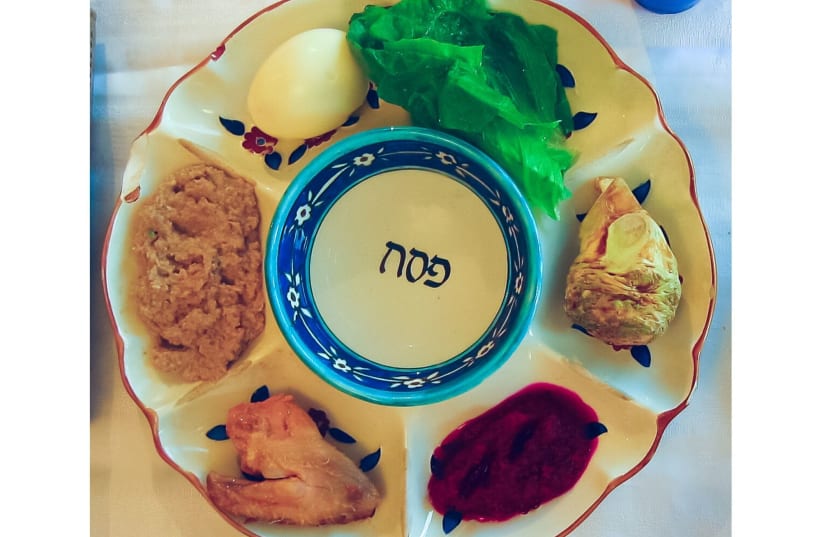JOHANNESBURG — There is a dramatic scene described in the Haggadah of a Passover Seder that took place during turbulent and uncertain times. The Temple had just been destroyed and Roman soldiers were all over Israel. The future looked bleak.
But on that Seder night, five of the greatest sages of the time found faith, light, strength and hope. They were so enveloped by the experience of relearning, relooking at and re-engaging with telling the story of the historic events of our slavery and divine liberation from Egypt that the night passed by.
At dawn, their students entered the room to announce that the time had come to recite the Shema — the ultimate declaration of faith. After delving with such tremendous faith and energy into the story of the Exodus, the darkness had dissipated light and the light broken through.
The Seder experience carried them through the night of their uncertainty and gave them strength and hope and inspiration. And it can do the same for us, as it has done for generations of Jews, in good times and tough times.
This is going to be a Pesach like no other. This year, we will be having our Seders on our own. We won’t have friends and extended family around the table. But we will have the opportunity to immerse ourselves fully and deeply in an experience that takes us back to ancient Egypt and the awesome miracles of the ten plagues, the splitting of the sea and our God-given freedom. We will have the opportunity to connect to the generations of Jews who handed to their children the story of the history of our people born in slavery and the divine liberation that followed. We will be able to feel the pain of the persecution and the awesome light of the redemption of our ancestors.
We will also be able to feel the presence of Hashem at our Seder tables. One of the names of God is HaMakom, literally “the place.” This name comes up twice in the Haggadah. What does it mean when we call God “The Place”?
Our sages explain that the world is not God’s place, but that God is the place of the world. In other words, we don’t look at God as part of our universe; rather God contains everything. He holds the universe together. He holds our lives together. On Seder night, we remember how God freed our ancestors, how He looked after them, how He has held us throughout the journey of Jewish history and how He holds us today.
We will be able to go on this inspiring journey of faith and history, of inspiration and knowledge, of joy and strength, because the Haggadah and the mitzvah of the night will carry us.
We don’t need to go on this journey of the Seder night alone. The words of the Haggadah contain Divine wisdom for our times and all generations.
The Seder takes us on a journey that begins with a focus on the past — the birth of our people. But it ends with a vision for the future. The soaring praises of Hallel culminate in the beautiful words of Nishmat Kol Chai. This magnificent prayer envisages the Final Redemption — a time of universal peace and prosperity, of widespread unity and goodwill. A time of moral and spiritual clarity, when Hashem’s presence is manifest and the “soul of every living being” is moved to utter glorious praise to the Creator. This is a time when, as the prophet says, “Gוd will wipe away tears from all faces.”
And so, as we traverse the Seder, we journey from the past into a glorious future and pray fervently for that Final Redemption. We drink four cups of wine, corresponding to the four expressions of redemption, and conclude with a fifth cup of wine for Elijah, who heralds the coming of Moshiach.
This Nissan — a month of miracles and deliverance — may Hashem bring true redemption to the world, and health and healing to all of humanity.The views and opinions expressed in this article are those of the author and do not necessarily reflect the views of JTA or its parent company, 70 Faces Media.
